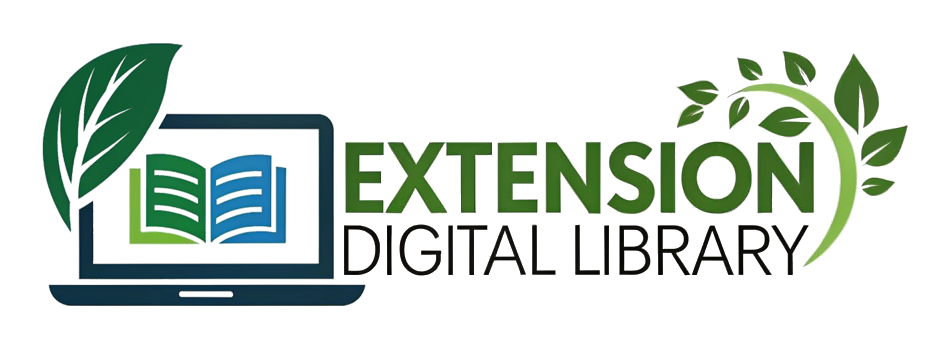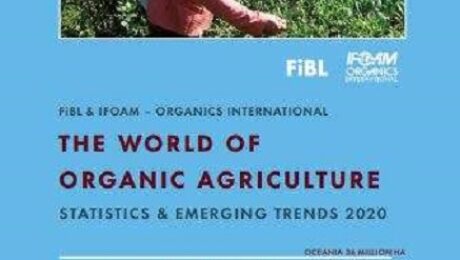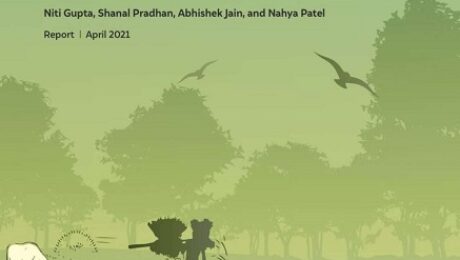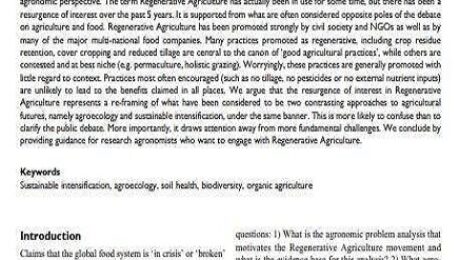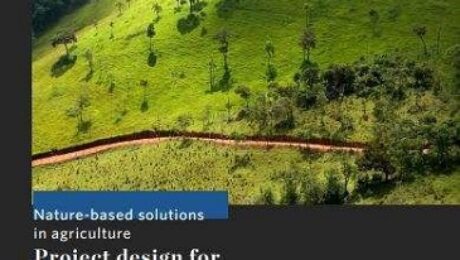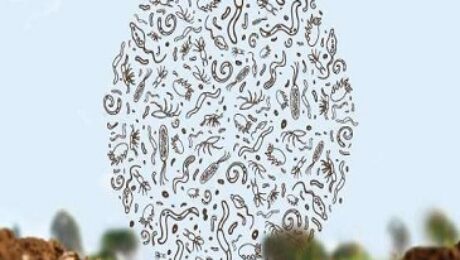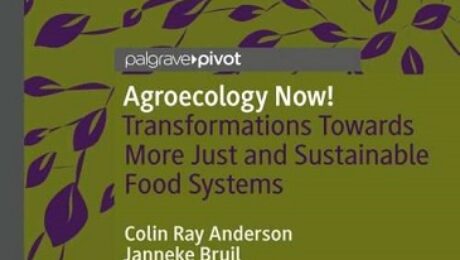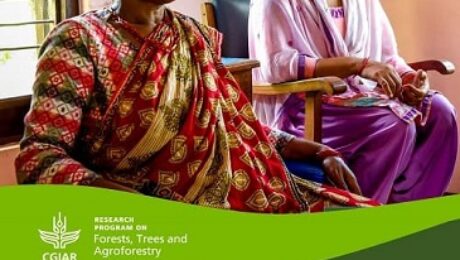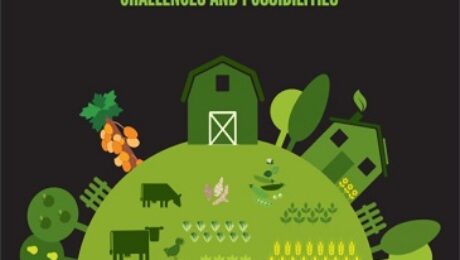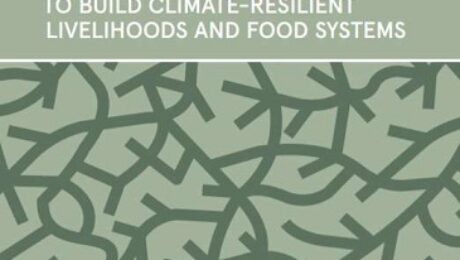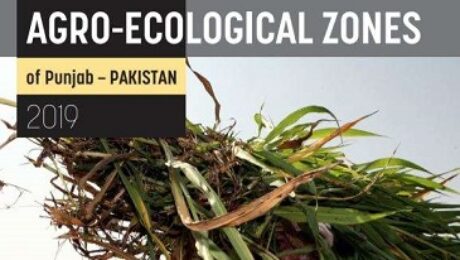The World of Organic Agriculture
The 21st edition of The World of Organic Agriculture, published by the Research Institute of Organic Agriculture (FiBL) and IFOAM – Organics International, provides a comprehensive review of recent developments in global organic agriculture. It includes contributions from representatives of the organic sector around the world and presents detailed organic farming statistics that cover the area under organic management, specific information about land use in organic systems, the number of farms and other operator types, and selected market data.
The book also contains information about the global market for organic food, information on standards and regulations, organic policy, and insights into current and emerging trends in organic agriculture in Africa, Asia, Europe, the Mediterranean, Latin America and the Caribbean, North America, and Oceania.
- Published in AGROECOLOGY
CEEW FOLU Sustainable Agriculture in India 2021
Sustainable agriculture, agroecology, regenerative agriculture, organic farming, natural farming are some of the most common terms used to describe various sustainable agriculture approaches. One might ask why so many different terminologies refer to these respective but related concepts. Perhaps it is not essential to bother about the various terms as long as we know what we mean conceptually. However, in the absence of universally accepted definitions of each of these terms, everyone has their interpretation of them. It also means that two different individuals may interpret or even apply the underlying philosophy or concept differently while using the same term.
- Published in AGROECOLOGY
Regenerative Agriculture: An agronomic perspective
Agriculture is in crisis. Soil health is collapsing. Biodiversity faces the sixth mass extinction. Crop yields are plateauing. Against this crisis narrative swells a clarion call for Regenerative Agriculture. But what is Regenerative Agriculture, and why is it gaining such prominence? Which problems does it solve, and how? Here we address these questions from an agronomic perspective. The term Regenerative Agriculture has actually been in use for some time, but there has been a resurgence of interest over the past 5 years. It is supported from what are often considered opposite poles of the debate on agriculture and food. Regenerative Agriculture has been promoted strongly by civil society and NGOs as well as by many of the major multi-national food companies. Many practices promoted as regenerative, including crop residue retention, cover cropping and reduced tillage are central to the canon of ‘good agricultural practices’, while others are contested and at best niche (e.g. permaculture, holistic grazing). Worryingly, these practices are generally promoted with little regard to context. Practices most often encouraged (such as no tillage, no pesticides or no external nutrient inputs) are unlikely to lead to the benefits claimed in all places. We argue that the resurgence of interest in Regenerative Agriculture represents a re-framing of what have been considered to be two contrasting approaches to agricultural futures, namely agroecology and sustainable intensification, under the same banner. This is more likely to confuse than to clarify the public debate. More importantly, it draws attention away from more fundamental challenges. We conclude by providing guidance for research agronomists who want to engage with Regenerative Agriculture.
- Published in AGROECOLOGY
Nature-based solutions in agriculture: Project design for securing investment
the global food system drives a ten trillion-dollar economy that connects 7.5 billion consumers and a diverse array of more than 1 billion food producers (farmers, ranchers, pastoralists, and fish harvesters). Approximately one-half of the world’s habitable lands are used for agriculture (Ritchie, 2019). Not surprisingly, the food production system has a massive impact on our planet. As we look to the future, global food demand is set to increase 50%, including a 70% increase in protein demand by 2050 (OECD and FAO, 2018). Any solution to our challenges around climate, conservation and human well-being will need to involve a transition in the way we produce food and fiber. Agriculture can begin to use Nature-based Solutions (NbS) to reduce environmental impacts and, in some cases, enhance agricultural productivity. But in order to realize the full potential of Ag NbS to have a positive impact on these problems, we need new ways to fund them that are commensurate with the scale of the opportunities.
- Published in AGROECOLOGY, GUIDE/TOOLS/MANUALS
State of knowledge of soil biodiversity – Status, challenges and potentialities.
There is increasing attention on the importance of biodiversity for food security and nutrition, especially above-ground biodiversity such as plants and animals. However, less attention is being paid to the biodiversity beneath our feet, soil biodiversity, which drives many processes that produce food or purify soil and water. This summary for policy makers presents the key findings of the main report and is the result of an inclusive process involving more than 300 scientists from around the world under the auspices of the FAO’s Global Soil Partnership and its Intergovernmental Technical Panel on Soils, the Convention on Biological Diversity, the Global Soil Biodiversity Initiative and the European Commission. The summary for policy makers presents concisely the state of knowledge on soil biodiversity, the threats to it and the solutions that soil biodiversity can provide to problems in different fields. This report is a valuable contribution to raising awareness of the importance of soil biodiversity and highlighting its role in finding solutions to today’s global threats.
- Published in AGROECOLOGY
Agroecology Now!-Transformations Towards More Just and Sustainable Food Systems
This open access book develops a framework for advancing agroecology transformations focusing on power, politics and governance. It explores the potential of agroecology as a sustainable and socially just alternative to today’s dominant food regime. Agroecology is an ecological approach to farming that addresses climate change and biodiversity loss while contributing to the Sustainable Development Goals. Agroecology transformations represent a challenge to the power of corporations in controlling food system and a rejection of the industrial food systems that are at the root of many social and ecological ills. In this book the authors analyse the conditions that enable and disable agroecology’s potential and present six ‘domains of transformation’ where it comes into conflict with the dominant food system. They argue that food sovereignty, community-self organization and a shift to bottom-up governance are critical for the transformation to a socially just and ecologically viable food system. This book will be a valuable resource to researchers, students, policy makers and professionals across multidisciplinary areas including in the fields of food politics, international development, sustainability and resilience.
- Published in AGROECOLOGY
Gender Equality and Social Inclusion
Both women and men depend on forests, agroforestry and trees for their livelihoods, and play a critical role in managing them. However, inequalities persist in roles, rights and responsibilities of women and men, and shape the ways they participate in decision making, benefit from forest and tree resources, and experience changes in forest and tree-based landscapes. Gender biases in the wider policy environment and exclusionary social norms result in a gender gap in access to and control of assets and key resources, including land, labor, credit, information and extension services, with women facing disadvantages in several domains. These inequalities, embedded in formal and informal institutions and structures, hinder the change needed to support the sustainable and equitable development solutions that FTA seeks to deliver.
As FTA’s research agenda has evolved since the program’s inception, so too has the program’s portfolio of gender and social inclusion research. This revised research agenda and action plan draws on a tradition of quality gender work within FTA centers and complements FTA’s original Gender Strategy (2013). It reflects the evolution of the program, including thematic and methodological developments in gender research and praxis, and increases the focus on the nexus of gender and generation (including youth issues), and efforts to make FTA’s research increasingly transformative.
- Published in AGROECOLOGY
State of Organic and Natural Farming in India: Challenges and Possibilities
Organic and natural farming in India is still at a nascent stage. To scale it up and make it a mass movement, governments at the Centre and in states must take big steps.
Mainstreaming organic and natural farming will address the ecological, economic and existential crisis in Indian agriculture. Only by using farming methods that are sustainable in the long run will Indian agriculture-and India-become truly self-reliant.
- Published in AGROECOLOGY, INDIA
The potential of agroecology to build climate-resilient livelihoods and food systems
This study highlights the links between agroecology and climate change, by providing evidence on the technical (i.e. ecological and socio-economic) and policy potential of agroecology to build resilient food systems. The report aims to answer the following question:
How can agroecology foster climate change adaptation, mitigation and resilience through practices and policies?
Inspired by the idea that transformation will only happen through a coordinated approach among all levels, this study aims to combine evidence from a broad range of backgrounds and perspectives.
- Published in AGROECOLOGY
Agro-Ecological Zones in Punjab
A team of scientists and researchers from the University of Agriculture Faisalabad and University of Arid Agriculture Rawalpindi, in collaboration with FAO and Government of Punjab (Agriculture Department) worked together to delineate the Agro-Ecological Zoning (AEZ) in Punjab.
AEZ refers to the division of Punjab region into land resource mapping units, having a unique combination of landform, soil and climatic characteristics, and/or land cover.Based on the most up to date collected information on natural resources, climate and agricultural markets, AEZ reveals an enormous potential for crop diversification and productivity. And it is the need of the hour in a country where population is rapidly growing and where climate changes (increases in temperature, changes in rainfall pattern, extreme weather events) evidence the vulnerability of the current agricultural systems.From a side AEZ will help to make smallholder farming a profitable business and overall enhance agriculture efficiency.On the other side, policymakers will be able to use data of AEZ and associated information on land characteristics (soil quality, topography, agricultural land use, yeld etc) to formulate optimal policies for sustainable agricultural production.
- Published in AGROECOLOGY, PAKISTAN, RESOURCES
